
Find Help
More Items From Ergsy search
-

Are climate changes affecting mosquito populations in the UK?
Relevance: 100%
-

Are there mosquitoes in the United Kingdom?
Relevance: 54%
-
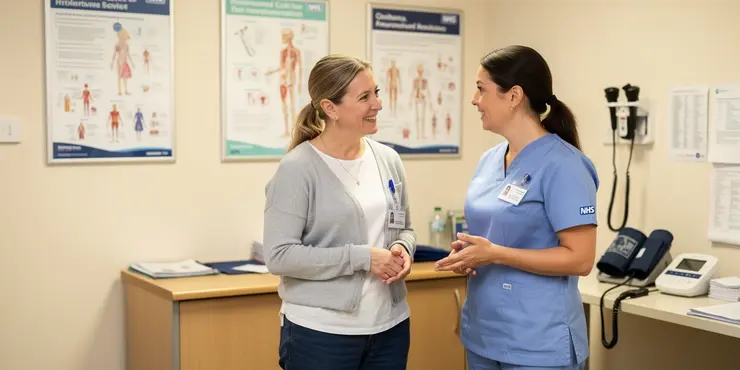
Do UK mosquitoes carry diseases?
Relevance: 51%
-

What types of mosquitoes are found in the UK?
Relevance: 49%
-
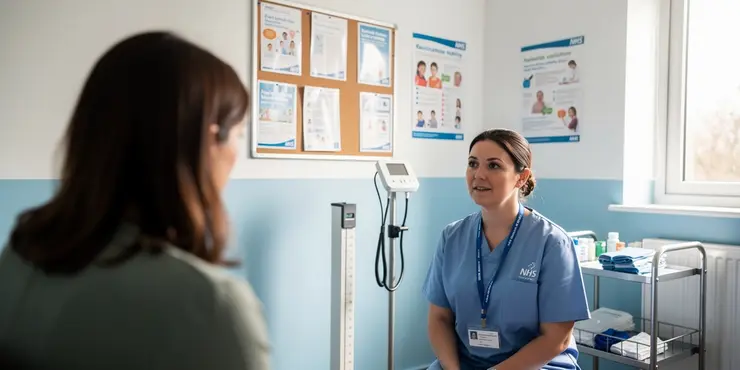
Are there any government initiatives to control mosquitoes in the UK?
Relevance: 49%
-
Do all mosquitoes in the UK carry diseases?
Relevance: 48%
-

Is malaria spread by mosquitoes in the UK?
Relevance: 48%
-
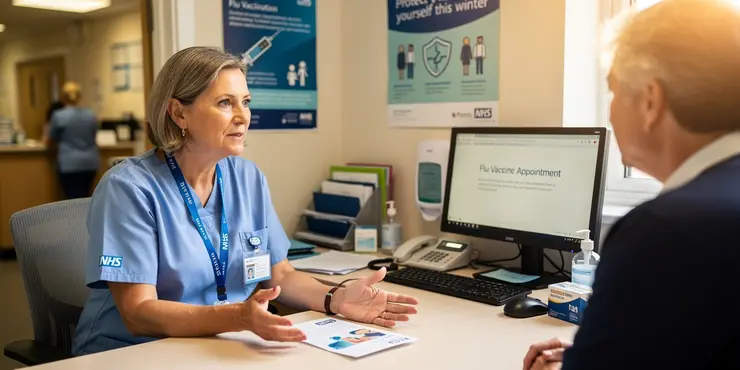
Will climate change affect the 2026 flu season?
Relevance: 47%
-
Can mosquitoes transmit any bacterial diseases in the UK?
Relevance: 46%
-

What diseases are spread by mosquitos in the UK in 2025?
Relevance: 46%
-
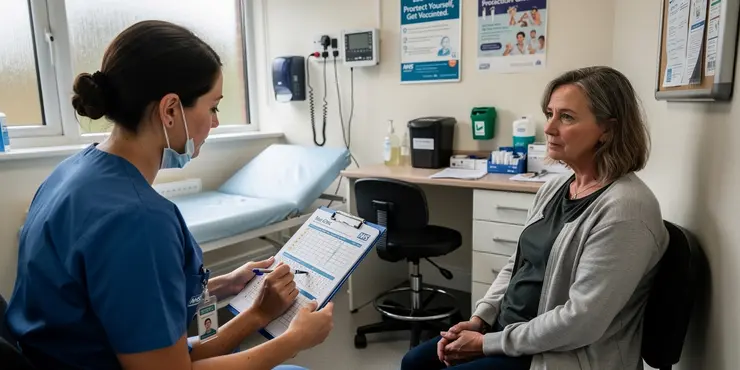
Is there a risk of yellow fever being spread by mosquitoes in the UK?
Relevance: 46%
-
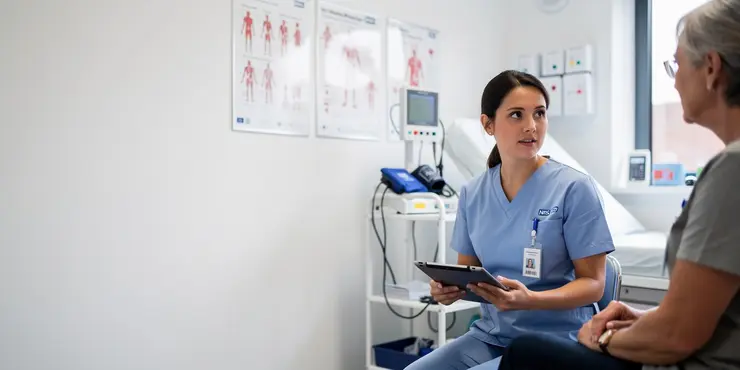
Are there Mosquitos in the United Kingdom?
Relevance: 45%
-
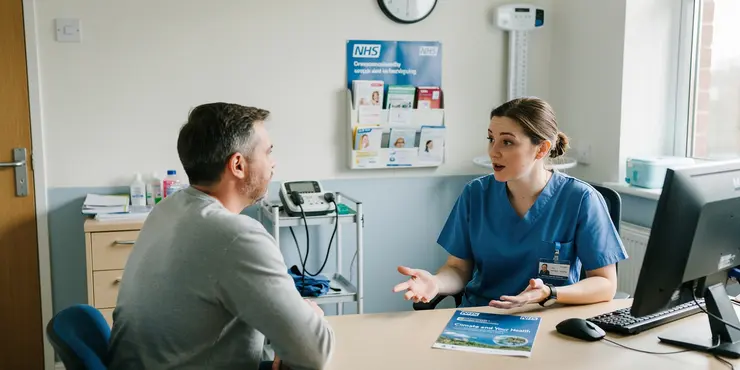
How do climate changes affect mosquito-borne diseases in the UK?
Relevance: 45%
-
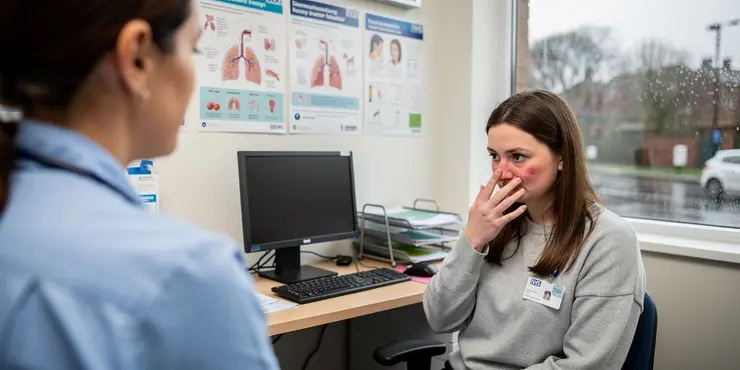
How does climate change affect pollen levels?
Relevance: 44%
-

Are UK mosquitoes capable of transmitting Zika virus?
Relevance: 43%
-

Is climate change affecting sewage pollution levels?
Relevance: 42%
-
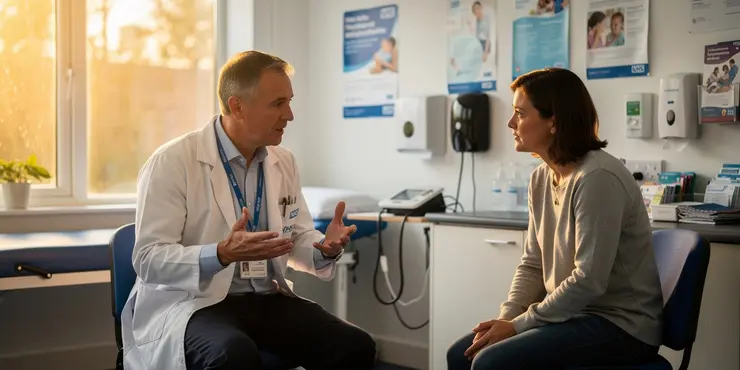
Are mosquito bites in the UK harmful?
Relevance: 42%
-
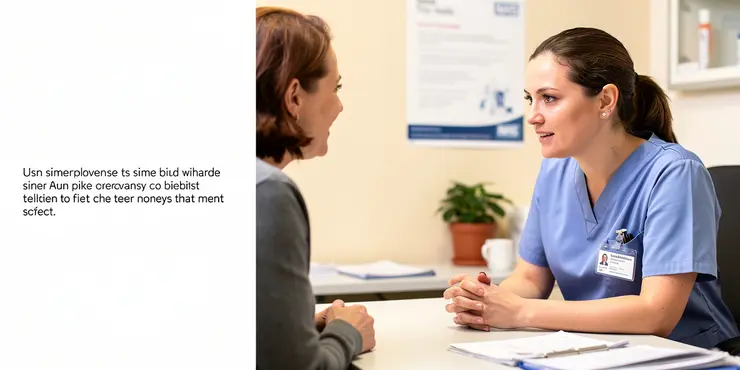
When are mosquitoes most active in the UK?
Relevance: 41%
-
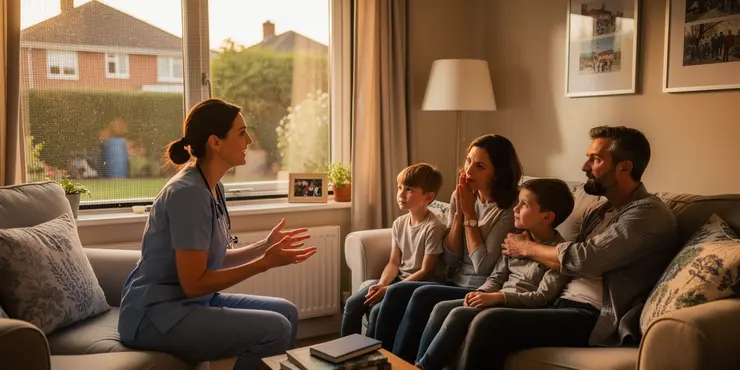
Are mosquito window screens effective in the UK?
Relevance: 41%
-
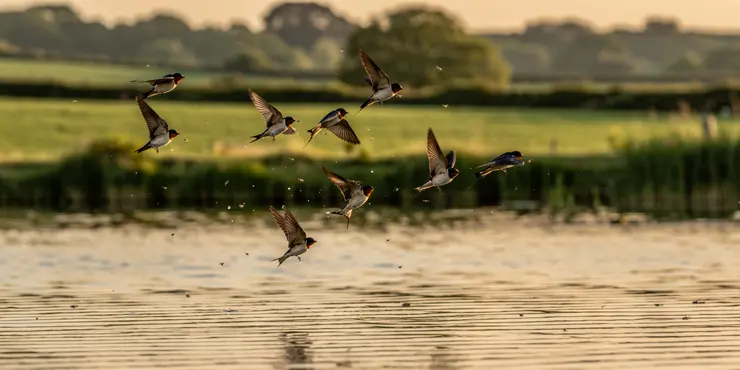
Are there any native mosquito predators in the UK?
Relevance: 41%
-
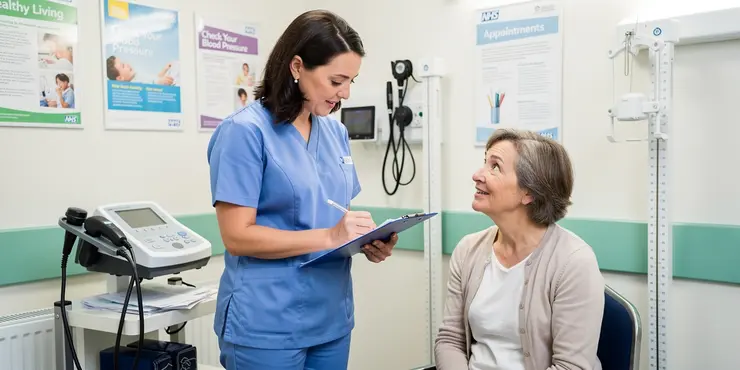
How does climate change affect water infrastructure maintenance?
Relevance: 39%
-
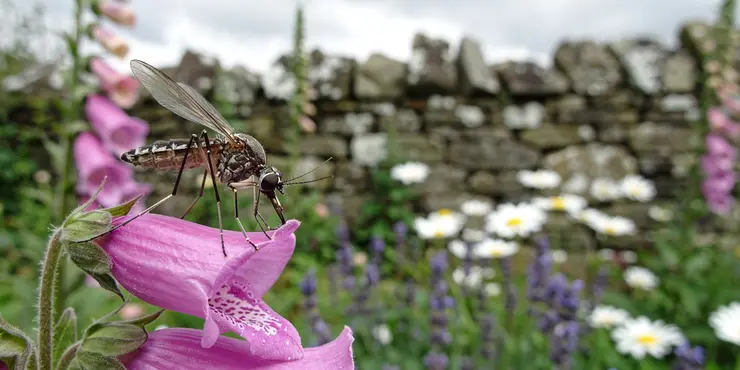
Do all mosquitoes bite humans?
Relevance: 39%
-

What regions of the UK are most affected by mosquito-borne diseases?
Relevance: 37%
-

Is there a season when mosquito-borne diseases are more likely in the UK?
Relevance: 37%
-
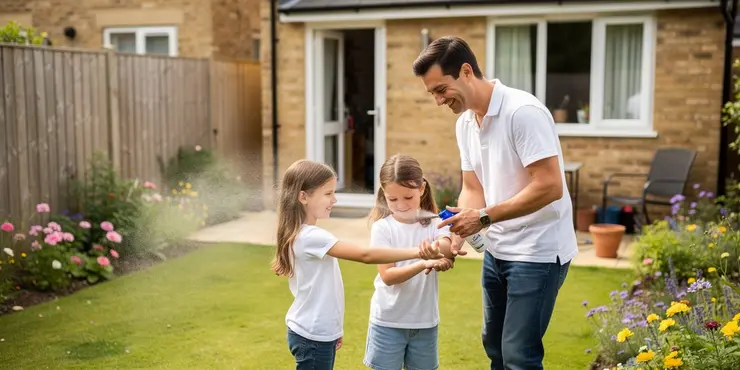
How effective are mosquito repellents in the UK?
Relevance: 35%
-
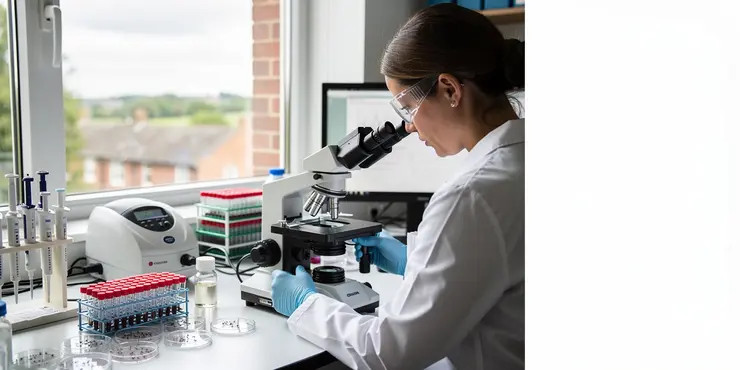
What research is being conducted on mosquito-borne diseases in the UK?
Relevance: 35%
-
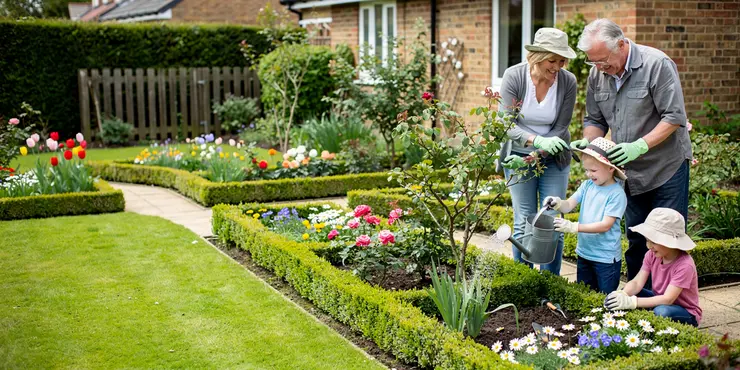
How can I prevent mosquitoes from breeding near my home?
Relevance: 35%
-

Can mosquitoes in the UK enter houses?
Relevance: 34%
-

Do mosquito screens provide insulation benefits?
Relevance: 34%
-
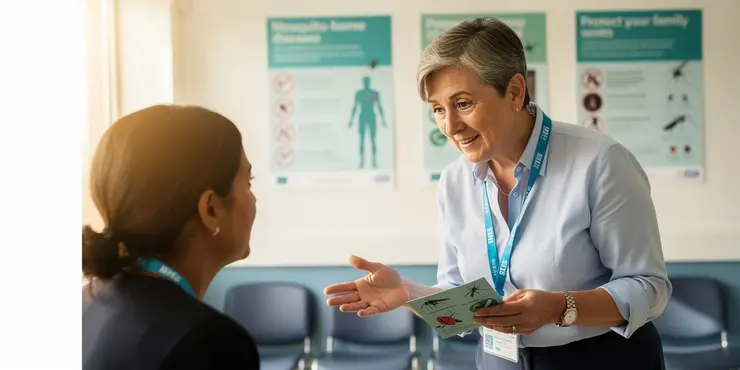
Are there any new mosquito-borne diseases emerging in the UK in 2025?
Relevance: 34%
-
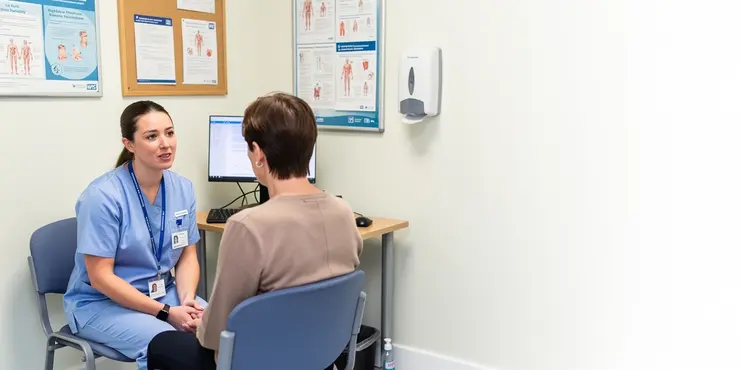
Will mosquito screens block out light or air?
Relevance: 32%
-

Can mosquito screens be used on doors as well?
Relevance: 32%
-
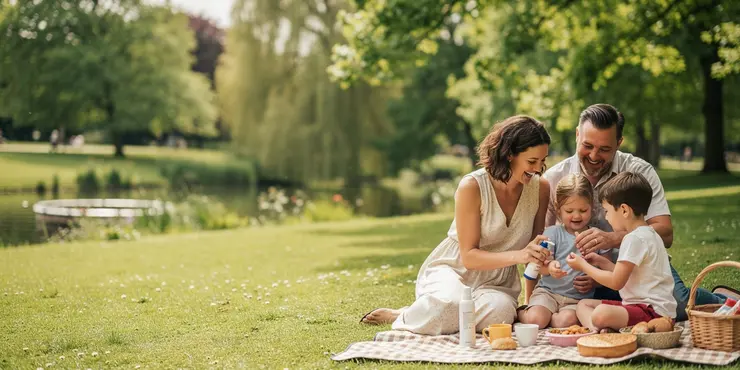
How can I protect myself from mosquito bites in the UK?
Relevance: 31%
-
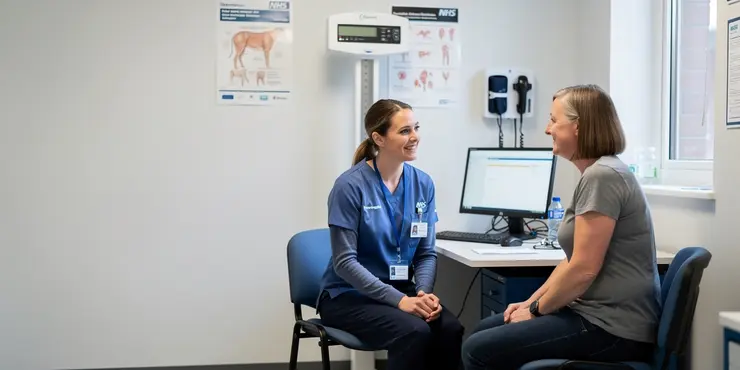
How prevalent is West Nile virus in the UK?
Relevance: 31%
-

What materials are mosquito screens made from?
Relevance: 31%
-

Do mosquito screens add value to my home?
Relevance: 31%
-

Where in the UK are mosquitoes most common?
Relevance: 31%
-
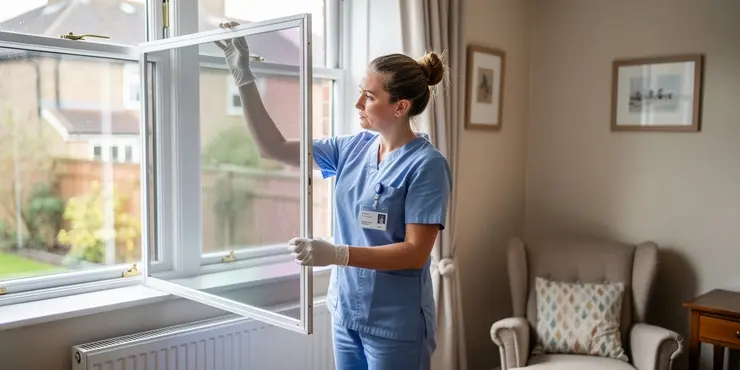
Are Mosquito window screens effective?
Relevance: 31%
-
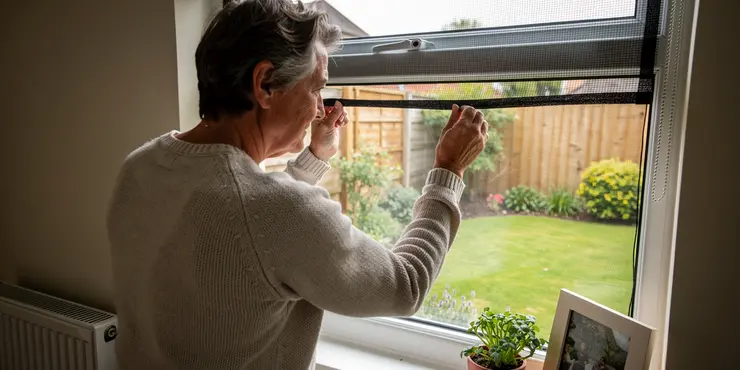
Are mosquito screens effective against midges?
Relevance: 30%
-
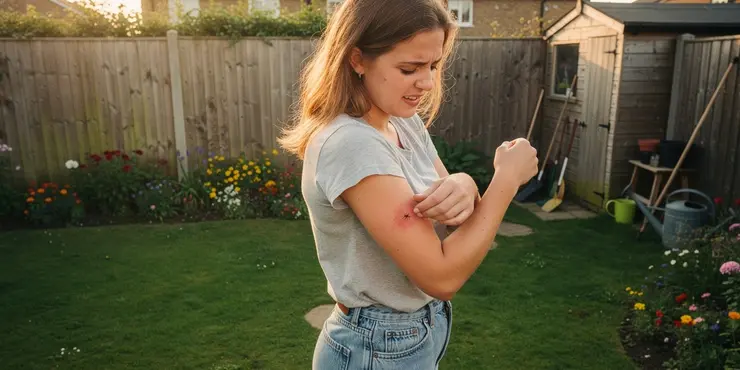
Why are mosquito bites itchy?
Relevance: 30%
Are Climate Changes Affecting Mosquito Populations in the UK?
Introduction
Climate change is a global phenomenon that is influencing various ecosystems and species. In the UK, one area of concern is the potential impact on mosquito populations. Mosquitoes are not only nuisances but vectors for various diseases. Understanding how climate change affects them is crucial for public health and ecological balance.Temperature Increases
Temperature is a critical factor for mosquito life cycles. Warmer temperatures in the UK have led to an extension of the mosquito breeding season. This allows them to reproduce more frequently and increase in number. Long, warm summers provide ideal conditions for mosquito larvae to mature faster, potentially resulting in more generations each year.Changing Rainfall Patterns
Mosquitoes thrive in standing water, which is necessary for their eggs to hatch. Climate change has caused shifts in rainfall patterns across the UK, resulting in more frequent and intense rainfalls followed by periods of drought. Increased rainfall leads to the formation of temporary water bodies, perfect breeding sites for mosquitoes, while some dry periods might reduce water sources, affecting population dynamics.Arrival of New Species
Changes in climate are also facilitating the arrival and establishment of non-native mosquito species in the UK. Species previously confined to southern Europe or other regions are now being detected, potentially bringing new diseases with them. This is of particular concern for public health authorities as these mosquitoes may be vectors for diseases not previously prevalent in the UK.Impact on Disease Transmission
The growing and shifting mosquito populations raise concerns about the potential for increased disease transmission. While malaria and other tropical diseases are not currently a significant issue in the UK, the presence of new mosquito species could change this. Monitoring and controlling mosquito populations thus becomes critical to prevent new public health challenges.Conclusion
Climate change is undeniably affecting mosquito populations in the UK, through extended breeding seasons, altered rain patterns, and the arrival of new species. These changes have significant implications for public health, prompting the need for increased research and proactive management to address the potential risks associated with evolving mosquito populations. Public awareness and preparedness are vital in adapting to these environmental changes.Are Climate Changes Affecting Mosquito Populations in the UK?
Introduction
Climate change is when the weather patterns on Earth change over time. This can affect how plants and animals live. In the UK, this change is making people worry about mosquitoes. Mosquitoes are not just annoying—they can spread diseases. It is important to know how climate change is affecting mosquitoes to keep people healthy and the environment balanced.Temperature Increases
Mosquitoes need warm weather. In the UK, it is getting warmer. This means mosquitoes can have babies for more months in the year. With longer warm weather, mosquitoes can grow and have more babies faster. This might mean we will see more mosquitoes each year.Changing Rainfall Patterns
Mosquitoes lay their eggs in water. Changes in weather are causing more rain followed by dry times in the UK. When it rains a lot, small pools and puddles form. These are perfect for mosquito eggs. But if it gets too dry, water can dry up, which might mean fewer places for mosquitoes to grow.Arrival of New Species
Warmer weather can allow new types of mosquitoes to come to the UK from other countries. These mosquitoes can bring new diseases with them. This worries people who work to keep everyone healthy, because these mosquitoes might spread illnesses we haven’t seen much before in the UK.Impact on Disease Transmission
More mosquitoes and new types of mosquitoes mean there is a risk that diseases might spread more. Right now, diseases like malaria are not a big problem in the UK. But if new mosquitoes arrive, this could change. It’s important to watch mosquito numbers and keep them under control to stop new health problems.Conclusion
Climate change is affecting mosquito numbers in the UK. There are more mosquitoes because of warmer weather, and new mosquitoes are coming because the climate is changing. This can lead to health problems. It is important to study these changes and find ways to manage them. Everyone needs to be ready and informed about how to deal with these changes in our environment.Frequently Asked Questions
How is climate change affecting mosquito populations in the UK?
Climate change is leading to warmer temperatures and altered rainfall patterns in the UK, creating more hospitable environments for mosquitoes. This can result in an increase in their populations and extended breeding seasons.
Are there any new mosquito species appearing in the UK due to climate change?
Yes, changes in climate could allow non-native mosquito species to establish themselves in the UK, including those capable of transmitting diseases like the Asian tiger mosquito.
Has climate change affected the breeding season of mosquitoes in the UK?
Yes, warmer temperatures can lead to longer breeding seasons for mosquitoes, allowing them to reproduce for more months of the year.
What diseases are mosquitoes in the UK capable of spreading?
Currently, the risk of mosquito-borne diseases in the UK is low. However, if climate change allows new species to establish, there could be a risk of diseases such as West Nile virus.
How do warmer temperatures influence mosquito life cycles?
Warmer temperatures can accelerate the life cycle of mosquitoes, leading to faster development from egg to adult, which can increase population sizes.
Can altered rainfall patterns due to climate change affect mosquito populations?
Yes, increased rainfall can create more standing water, which mosquitoes need for breeding. However, droughts can reduce breeding sites temporarily.
What areas of the UK are seeing the most changes in mosquito populations?
Southern England is most likely to see changes in mosquito populations due to its milder climate conducive to mosquito survival.
Is the UK at risk of malaria returning due to climate change?
While the risk is currently low, climate change could increase the potential for malaria if the Anopheles mosquitoes were to thrive and infected individuals were present.
What preventive measures can be taken to control mosquito populations as the climate changes?
Measures include eliminating standing water, using mosquito repellents, installing screens on windows, and monitoring and controlling mosquito populations through public health interventions.
Are government policies in the UK addressing the impact of climate change on mosquitoes?
Yes, public health agencies are monitoring mosquito populations and climate data to predict and mitigate potential risks associated with changing mosquito populations.
How might climate change indirectly affect mosquito populations?
Climate change can affect ecosystems and biodiversity, indirectly impacting mosquito populations by altering predator-prey relationships and availability of breeding sites.
Are mosquitoes adapting to the UK's changing climate?
Mosquito species may be adapting to the changing climate, potentially surviving in the UK in larger numbers and for longer periods than before.
What role does citizen science play in monitoring mosquitoes in the UK?
Citizen science projects help collect data on mosquito sightings and breeding sites, which assists scientists in understanding and controlling mosquito populations.
Could climate change increase the UK’s need for pest control services?
Yes, as mosquito populations potentially grow due to climate change, there may be an increased demand for pest control to manage their numbers.
How can individuals help reduce their risk of mosquito bites at home?
Individuals can reduce risk by using mosquito nets and repellents, keeping doors and windows closed or screened, and eliminating standing water around their homes.
How is climate change changing the number of mosquitoes in the UK?
Climate change is making the UK warmer. Warm weather helps mosquitoes grow. So, there might be more mosquitoes because of climate change.
If you find this hard to read, you can ask someone to help or use a tool that reads text out loud.
Changes in our weather are making the UK warmer and wetter. This makes it a better place for mosquitoes to live. Because of this, there might be more mosquitoes, and they might be around for longer.
Are there new kinds of mosquitoes in the UK because of climate change?
Climate change means the weather is getting warmer. This can bring new mosquitoes to the UK.
If you have trouble reading, try these tips:
- Read slowly and take your time.
- Use your finger to follow the words.
- Ask someone to read with you.
Yes, because the weather is changing, some new mosquitoes might come to live in the UK. This includes the Asian tiger mosquito, which can spread diseases.
Does climate change change when mosquitoes have babies in the UK?
Yes, when it is warmer, mosquitoes can have babies for more months of the year.
What illnesses can mosquitoes in the UK give you?
Mosquitoes are little flying bugs. Some can make you sick. In the UK, they usually do not carry bad illnesses.
If you are worried about mosquito bites, wear long sleeves and use bug spray.
If you feel bad after a bite, tell a grown-up or doctor.
Right now, there is a small chance of getting sick from mosquitoes in the UK. But if the weather changes and new types of mosquitoes come here, there is a chance that people could get sick with diseases like West Nile virus.
To help understand better, use tools like picture cards or apps that show what mosquitoes look like. It's also good to watch videos about staying safe from mosquito bites.
How do warmer temperatures affect the life of mosquitoes?
When it gets hotter, mosquitoes grow faster. They lay eggs more quickly, and new mosquitoes are born sooner.
Hot weather helps mosquitoes find food faster too. They can bite more people and animals when it is warm.
To make understanding easier, you can use pictures or listen to the text being read out loud. This can help you learn more about how mosquitoes change when it is hot.
When it gets warmer, mosquitoes grow up faster from eggs to adults. This means there can be more mosquitoes.
Can changes in rain from climate change make more or fewer mosquitoes?
Yes, more rain makes more puddles and ponds. Mosquitoes lay eggs in water. So, more water helps them have babies. But, when there is very little rain, there is less water. This means mosquitoes can't have as many babies during that time.
Where in the UK are mosquitoes changing the most?
Mosquitoes are bugs that can bite us. They live in many places.
Some places in the UK have more mosquitoes now.
We want to know which places have the biggest changes in mosquito numbers.
If reading hard words is tricky, try using a ruler to help you stay on the line.
In Southern England, there might be more mosquitoes because the weather is warmer, which helps them live.
Could malaria come back to the UK because the weather is changing?
Right now, the chance of getting malaria is small. But if our climate changes, there might be a bigger chance. This is because special mosquitoes, called Anopheles mosquitoes, might like the new weather. And if people with malaria are around, it could spread more.
How can we stop mosquitoes from spreading more as the weather changes?
Mosquitoes can grow and spread more when the weather changes. Here are some simple ways to stop them:
- Dump out any water that collects around your home, like in buckets or flower pots.
- Use screens on windows and doors to keep mosquitoes out of the house.
- Wear long sleeves and pants when outside to avoid bites.
- Use mosquito repellent on your skin when playing or walking outside.
- Ask adults to grow plants that mosquitoes don't like, like lavender or basil.
These steps can help keep mosquitoes away and keep you safe. If you have trouble reading or understanding, you can ask someone to explain or read with you. There are also apps and tools that can read text out loud to you.
Here are some ways to keep mosquitoes away:
- Get rid of any water that's just sitting around.
- Use spray or lotion to keep mosquitoes from biting you.
- Put screens on windows to stop mosquitoes from getting inside.
- People who work in health care can help by checking and controlling how many mosquitoes are around.
Is the UK government doing something about climate change affecting mosquitoes?
Yes, health groups watch mosquito numbers and weather changes. This helps them see if there are any problems and fix them fast.
How can climate change affect mosquito numbers?
Climate change can change the weather. This makes some places warmer or wetter. Warm and wet places are good for mosquitoes.
More warm days can help mosquitoes lay more eggs. More rain can create water puddles where mosquitoes live. All this can mean more mosquitoes.
If you want help understanding this, using pictures or videos can be useful. They show how climate change and mosquitoes are connected.
Climate change can change the homes of animals and plants. It can also change the number of mosquitoes by affecting their predators and the places they lay eggs.
To understand this better, you can use pictures or videos. It might help to talk to someone about it too.
Are Mosquitoes Changing to Live in the UK's Weather?
There are different types of mosquitoes. They might be getting used to the changes in weather. This means more mosquitoes could live in the UK, and they could stay for longer than before.
How does citizen science help watch mosquitoes in the UK?
Citizen science lets everyone help. People can join in to count and watch mosquitoes. This helps scientists know where mosquitoes are.
If you want to help, you can use a smartphone to take pictures of mosquitoes. You can also write down what you see. There are apps and websites where you can share this information. Your help makes a big difference!
Using pictures, apps, and easy words can make it simpler to learn more. It's fun and helps keep everyone safe from mosquitoes.
Citizen science projects are where everyday people help collect information about seeing mosquitoes and where they breed. This helps scientists learn more, so they can manage and control mosquitoes better.
You can use pictures and drawings to help understand this information. You might also like to use apps that read the text out loud to you.
Will the UK need more bug control because of climate change?
As the world gets warmer, there might be more mosquitoes. This can mean more people will need help to keep mosquitoes away.
What can people do to stop mosquitoes from biting them at home?
Mosquitoes can be annoying. Here is how you can stop them:
- Close windows at night to keep mosquitoes out.
- Use a fan to blow them away.
- Put nets on windows and doors.
- Wear clothes that cover your arms and legs.
- Use special sprays to keep mosquitoes away from your skin.
- Make sure there is no water standing around your home, as mosquitoes love water.
Some tools that can help are:
- Mosquito spray
- Bed nets
- Window and door screens
You can stay safe from mosquitoes by following these tips:
- Sleep under a mosquito net.
- Put on mosquito repellent.
- Keep doors and windows closed or use screens.
- Remove water puddles or containers with water near your home.
Useful Links
This website offers general information and is not a substitute for professional advice.
Always seek guidance from qualified professionals.
If you have any medical concerns or need urgent help, contact a healthcare professional or emergency services immediately.
Some of this content was generated with AI assistance. We’ve done our best to keep it accurate, helpful, and human-friendly.
- Ergsy carfully checks the information in the videos we provide here.
- Videos shown by Youtube after a video has completed, have NOT been reviewed by ERGSY.
- To view, click the arrow in centre of video.
- Most of the videos you find here will have subtitles and/or closed captions available.
- You may need to turn these on, and choose your preferred language.
- Go to the video you'd like to watch.
- If closed captions (CC) are available, settings will be visible on the bottom right of the video player.
- To turn on Captions, click settings .
- To turn off Captions, click settings again.
More Items From Ergsy search
-

Are climate changes affecting mosquito populations in the UK?
Relevance: 100%
-

Are there mosquitoes in the United Kingdom?
Relevance: 54%
-

Do UK mosquitoes carry diseases?
Relevance: 51%
-

What types of mosquitoes are found in the UK?
Relevance: 49%
-

Are there any government initiatives to control mosquitoes in the UK?
Relevance: 49%
-
Do all mosquitoes in the UK carry diseases?
Relevance: 48%
-

Is malaria spread by mosquitoes in the UK?
Relevance: 48%
-

Will climate change affect the 2026 flu season?
Relevance: 47%
-
Can mosquitoes transmit any bacterial diseases in the UK?
Relevance: 46%
-

What diseases are spread by mosquitos in the UK in 2025?
Relevance: 46%
-

Is there a risk of yellow fever being spread by mosquitoes in the UK?
Relevance: 46%
-

Are there Mosquitos in the United Kingdom?
Relevance: 45%
-

How do climate changes affect mosquito-borne diseases in the UK?
Relevance: 45%
-

How does climate change affect pollen levels?
Relevance: 44%
-

Are UK mosquitoes capable of transmitting Zika virus?
Relevance: 43%
-

Is climate change affecting sewage pollution levels?
Relevance: 42%
-

Are mosquito bites in the UK harmful?
Relevance: 42%
-

When are mosquitoes most active in the UK?
Relevance: 41%
-

Are mosquito window screens effective in the UK?
Relevance: 41%
-

Are there any native mosquito predators in the UK?
Relevance: 41%
-

How does climate change affect water infrastructure maintenance?
Relevance: 39%
-

Do all mosquitoes bite humans?
Relevance: 39%
-

What regions of the UK are most affected by mosquito-borne diseases?
Relevance: 37%
-

Is there a season when mosquito-borne diseases are more likely in the UK?
Relevance: 37%
-

How effective are mosquito repellents in the UK?
Relevance: 35%
-

What research is being conducted on mosquito-borne diseases in the UK?
Relevance: 35%
-

How can I prevent mosquitoes from breeding near my home?
Relevance: 35%
-

Can mosquitoes in the UK enter houses?
Relevance: 34%
-

Do mosquito screens provide insulation benefits?
Relevance: 34%
-

Are there any new mosquito-borne diseases emerging in the UK in 2025?
Relevance: 34%
-

Will mosquito screens block out light or air?
Relevance: 32%
-

Can mosquito screens be used on doors as well?
Relevance: 32%
-

How can I protect myself from mosquito bites in the UK?
Relevance: 31%
-

How prevalent is West Nile virus in the UK?
Relevance: 31%
-

What materials are mosquito screens made from?
Relevance: 31%
-

Do mosquito screens add value to my home?
Relevance: 31%
-

Where in the UK are mosquitoes most common?
Relevance: 31%
-

Are Mosquito window screens effective?
Relevance: 31%
-

Are mosquito screens effective against midges?
Relevance: 30%
-

Why are mosquito bites itchy?
Relevance: 30%


